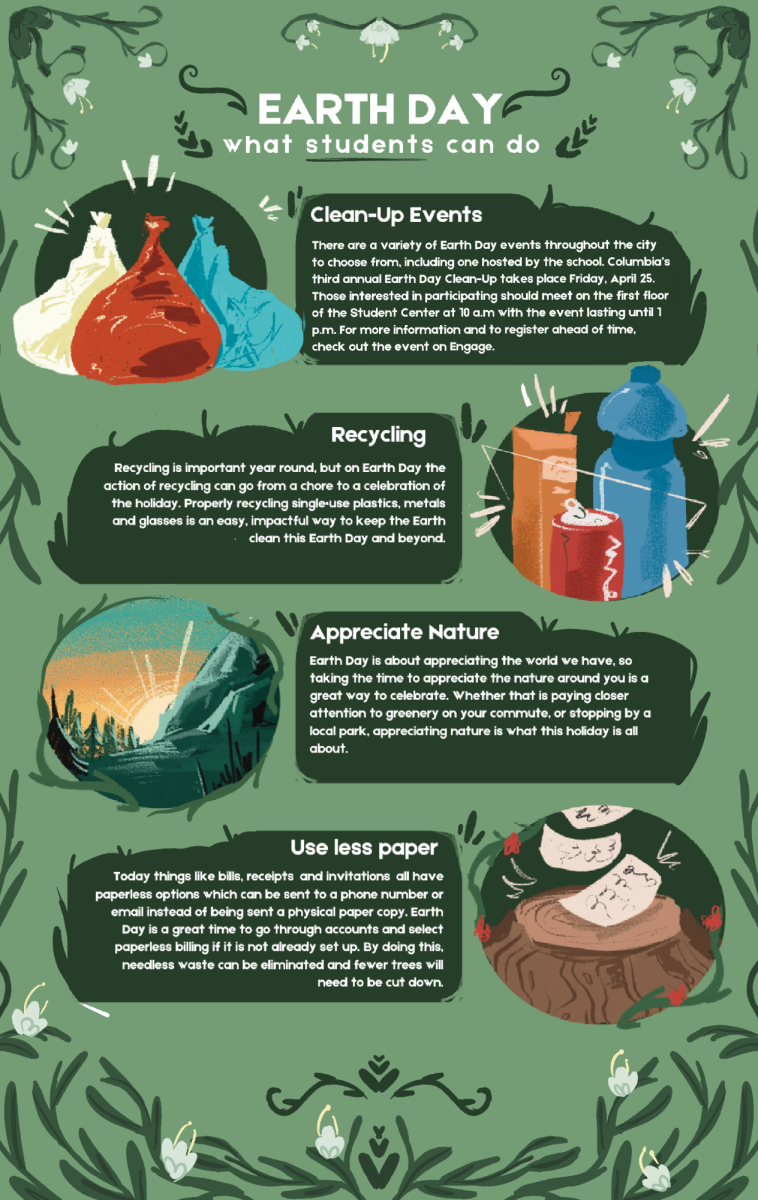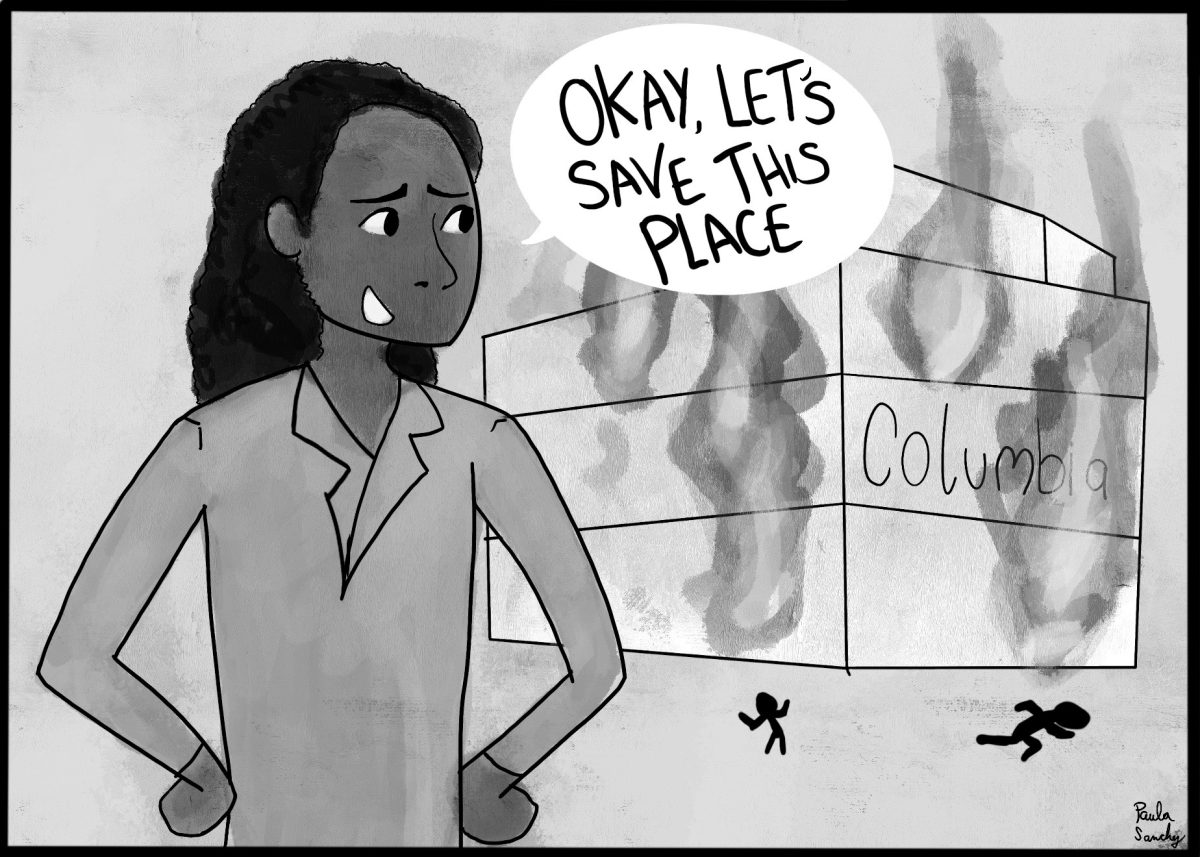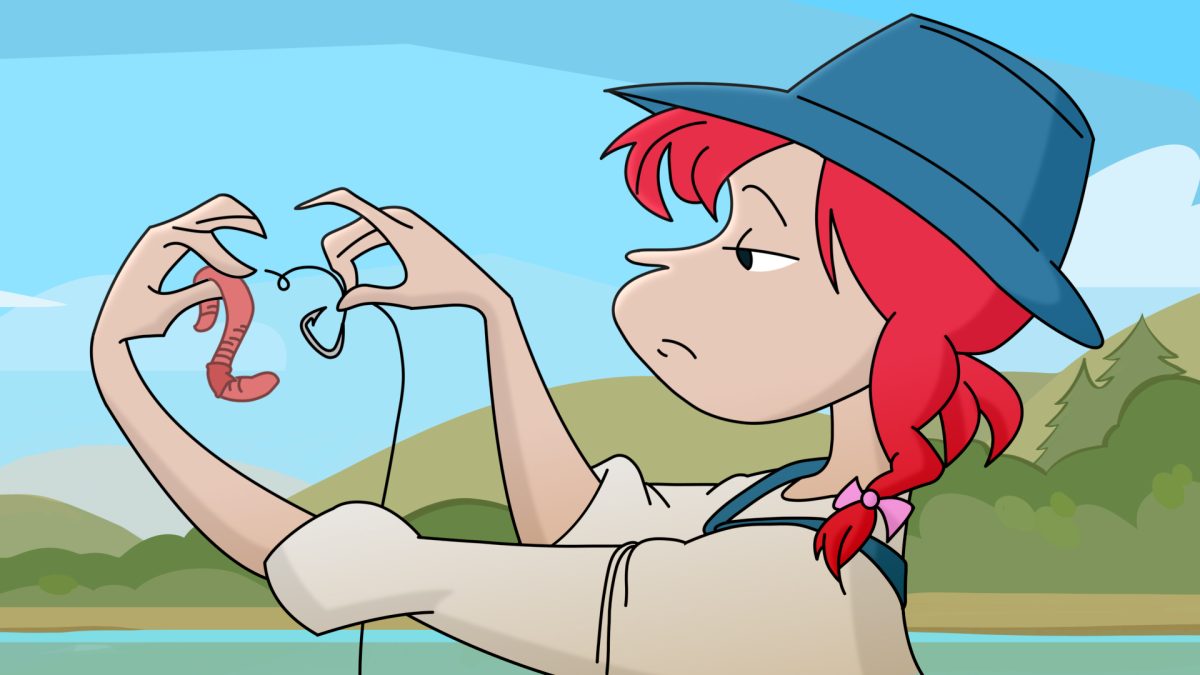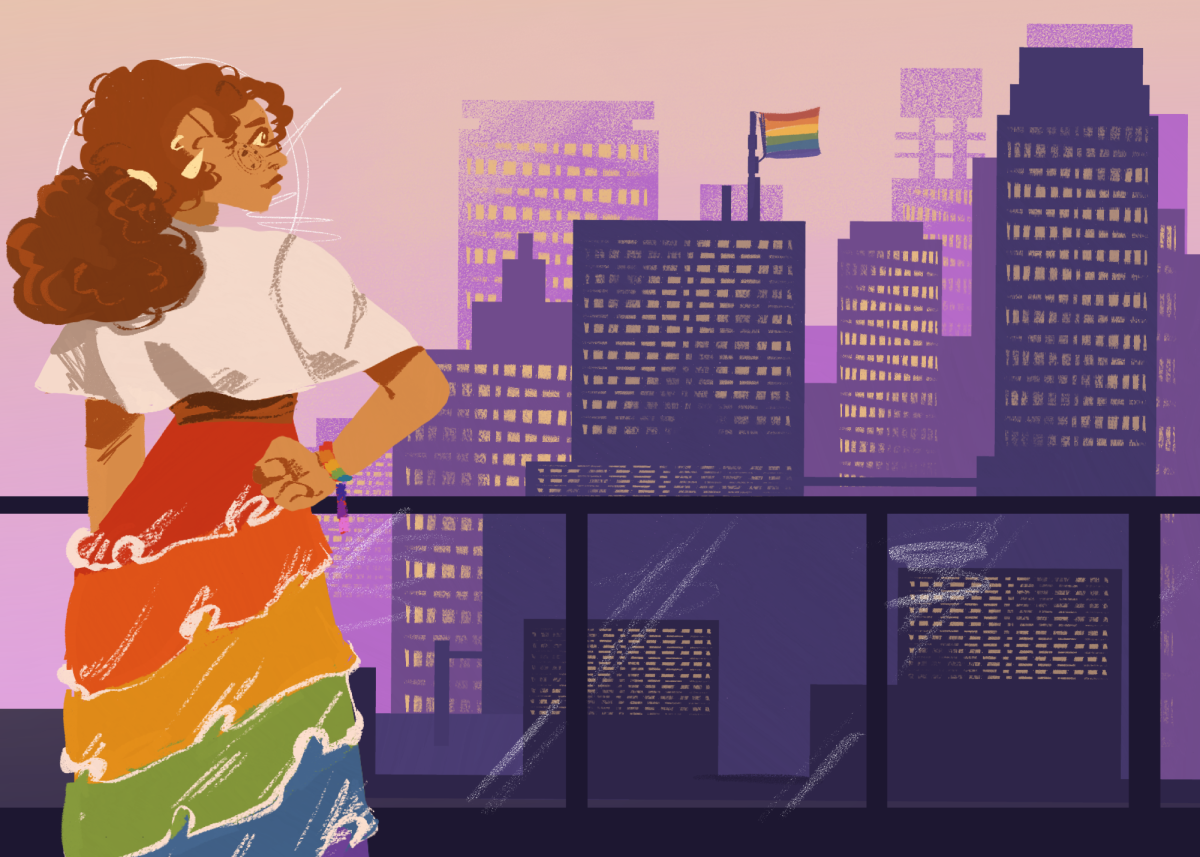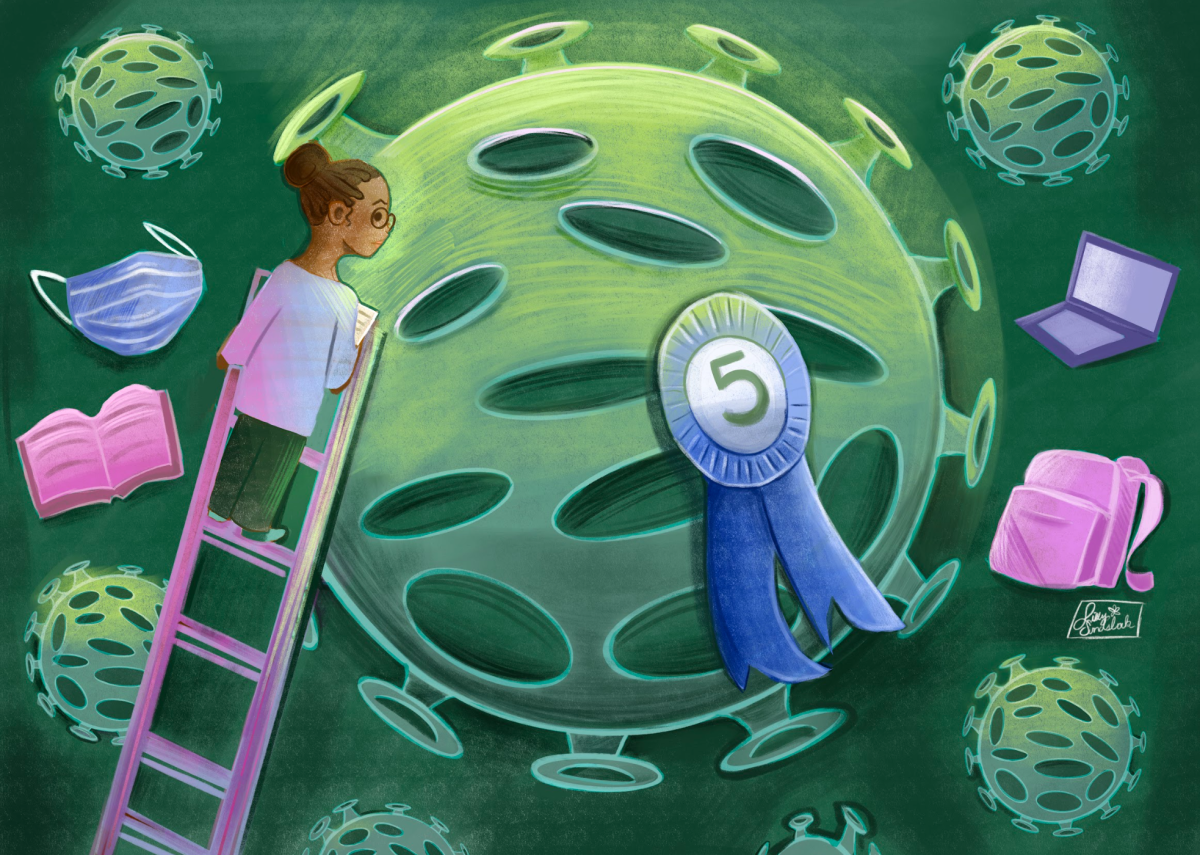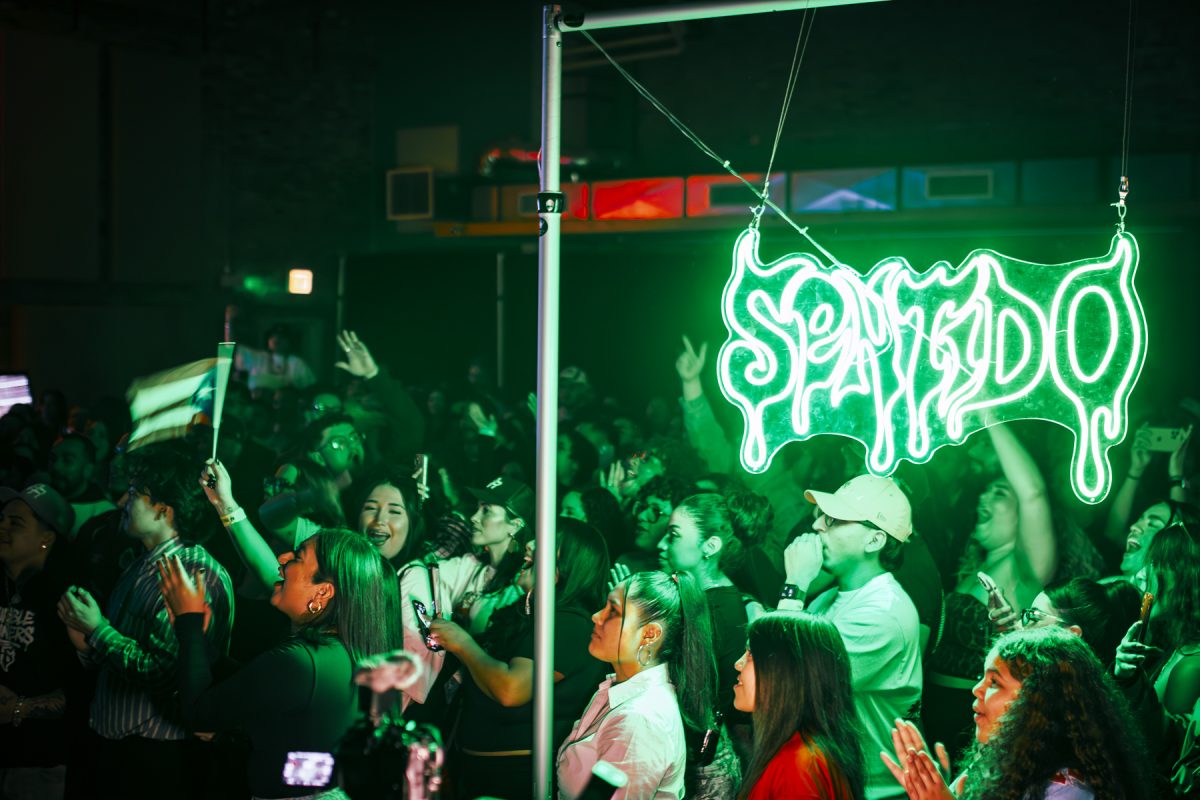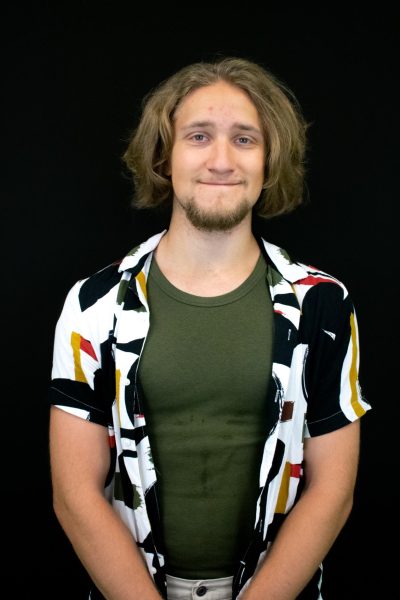Five years ago this spring, a mysterious virus started showing up around the world. By mid-March the world started to shut down. People were sent home from school and work, and families were cut off from each other.
The Chronicle talked to five individuals whose paths were altered by the COVID-19 pandemic. From students still in middle school to faculty who had to redefine their teaching methods, each portrait is the story of one person whose life was part of a global upheaval.
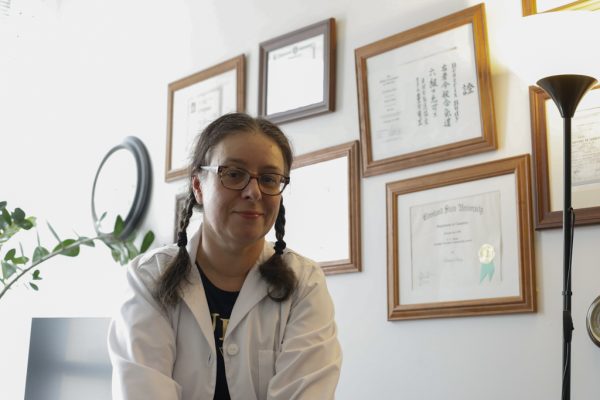
Beatrix Budy, associate professor, School of Design
When the pandemic first started and her students were sent home, Associate Professor Beatrix Budy, who teaches science and mathematics, had students calculate the R-naught numbers, as well as transmission and other scientific calculations to figure out the potential death toll of what was then known as the coronavirus outbreak.
However, the numbers they got felt wrong. “We came up with this number that by the end of the year if this epidemic is not contained it would have 10 to 100,000 deaths and we just thought that the math must be wrong. We did not really understand the gravity of the situation,” Budy said.
Of course, nobody did.
Looking back, Budy said the pandemic didn’t have to be this bad. It has killed more than 7 million people globally, according to the World Health Organization.
“Humankind, fucked up again,” Budy said. “So that being said I want to be positive and move forward. So the pandemic has passed and swept society like a tsunami, and all this societal debris is left.”
She saw a positive impact it had on education. “Before the systems in place for students to learn remotely were not set up, but now those systems give students and teachers a sense of freedom. Everything is planned out and choreographed so I can be free because I did the work upfront.”
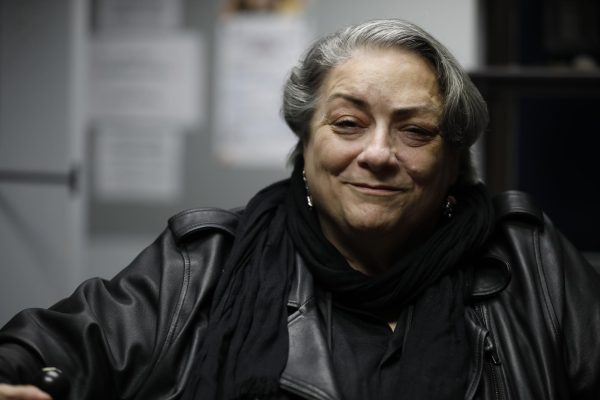
Frances Maggio, associate professor, School of Theatre and Dance
When the pandemic first started and Columbia switched to remote learning, Associate Professor Frances Maggio of the School of Theatre and Dance had to come up with ways to teach stage design over Zoom.
One of the things she had to teach her students was draping. “I mean, teaching draping over the internet is really funny, you know. It’s like pull that up just a half an inch. I’m like no, just a half an inch. It was really funny,” Maggio said.
The pandemic also changed the approach Maggio took when it comes to preparing students for graduation and entering the workforce. “I think it has affected the trajectory of students going out into the world because there was actually less physical theater going on and we’re really striving to get them involved in construction in film and television.”
Theatre students also still did productions even if they weren’t on a stage. “So we did productions where there were like little boxes, and actor one was in this box, and actor two was in the other box and it was filmed so that they looked like they were interacting. We did a lot of stuff like that that was really creative.”
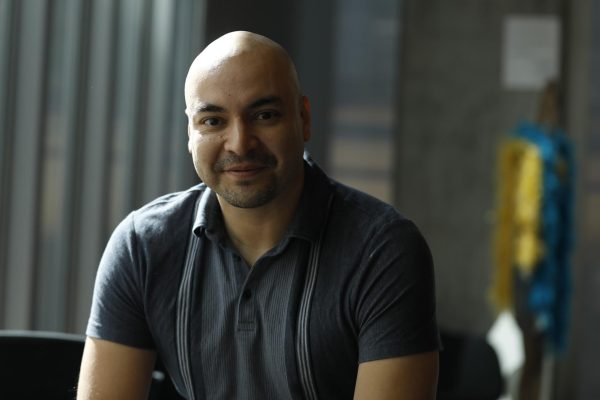
Carlos Diaz, coordinator of student programs and activities
Carlos Diaz, coordinator of student programs and activities, watched students be impacted by the pandemic even as he went through his own changes. One of the biggest was a renewed appreciation for others.
“We don’t take for granted our health, our liberties, the ability to just see each other nowadays,” Diaz said. “When you think back on it and how isolated we were quarantined and things like that, we have that emotional memory and when it’s triggered for whatever reason to just be able to be in the same room with a person feels kind of like a relief.”
During COVID, Diaz used the time to get outside and be active, which is something that has continued in the years since. “I had a dog at the time and we would just take full advantage of that and just walking. I go on walks every single day. I feel like nowadays if I haven’t been outside for whatever reason, it feels unnatural in terms of what it was before the pandemic.
Diaz said he has “selective amnesia” about the pandemic. “We don’t think on it until something comes up and you’re like, oh yeah, that did happen, didn’t it? And then it just kind of gives you the creeps.”
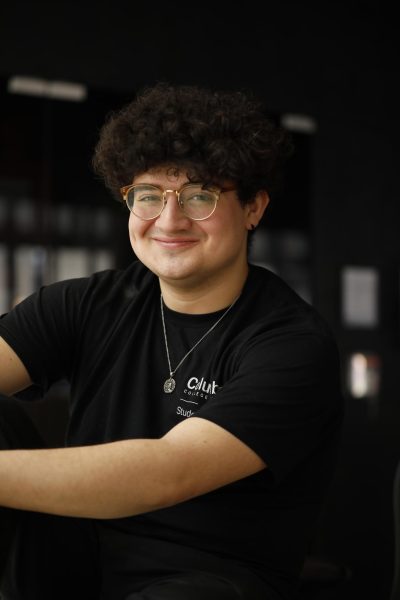
Angel Román, senior screenwriting major
For Angel Román, a senior screenwriting major, the pandemic changed what he wanted to do.
I originally was gonna be an acting major when, before the pandemic hit, and I stayed inside and like I was texting some friends and were goofing around, and I was watching a lot of movies, and I got the idea to try to make one with friends,” Román said.
Another big shift for Román was leaning more into being introverted and taking days for mental health. “I think I’ve really found my introvertedness because of the pandemic, and now I kind of value that a lot. I think that’s given me the chance to value being alone and also having time for myself.”
The pandemic has also caused people to be more self-aware about illness . “I mean, I think we’re all really cautious of disease. Now I don’t think anybody fucks around with the fact like, if you say, ‘I’m a little sick.’ It’s a jump back thing for me.”
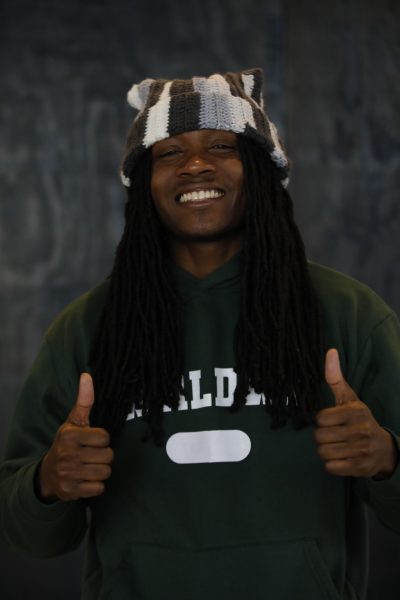
Uriel Blunt, senior music business major
Uriel Blunt, a senior music business major, said the isolation from the shutdown made him become more introverted than he was before.
“I do feel like I became more introverted. I mean I know we were secluded and isolated, so I don’t know if that might have affected it more, but I just, I don’t know, I feel like I would want to preserve my energy more,” Blunt said.
Another impact on students and Blunt was the widespread use of online classes. “Because it’s online class that could be really detrimental due to not having that physical interaction in the classroom because you don’t really be aware of the actual content that the teacher is teaching.”
Five years after the pandemic students feel very different with some having moved on while others still think back on it. “Are we gonna go through it again? Like how long it would be? ‘Cause I know that was just a crazy time. I adjusted to it well, but it was like society as a whole was caving in. I do think about, ’Is it gonna happen again?’”
Copy edited by Patience Hurston
Resumen en Español:
Hace cinco años, en primavera, un virus misterioso comenzó a aparecer en todo el mundo. El Chronicle habló con cinco personas cuyas vidas fueron alteradas por la pandemia de COVID-19. Desde estudiantes de secundaria hasta profesores que tuvieron que redefinir sus métodos de enseñanza, cada historia refleja el impacto de un cambio global.
Resumen por Doreen Abril Albuerne Rodriguez
Resumen editado por Manuel Nocera

